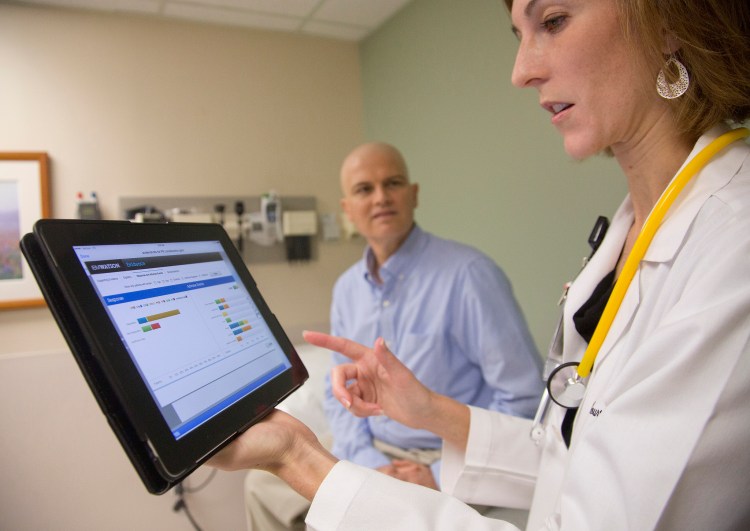Watch all the Transform 2020 sessions on-demand here.
In 2016, as part of then-Vice President Joe Biden’s National Cancer Moonshot Initiative, the U.S. Department of Veterans Affairs (VA) and IBM embarked on a collaboration aimed at providing access to “precision treatment” options to over 10,000 patients with cancer. Today, the two announced an extension of that partnership — the VA will continue using IBM’s Watson for Genomics platform through June 2019.
The program has achieved a measure of success in the two years since it started, according to the VA. Oncologists have used IBM Watson for Genomics to identify mutations in cancer cells’ DNA for more than 2,700 veterans, which make up roughly 3.5 percent of cancer patients in the country. From those insights, the doctors develop personalized therapies targeting particularly aggressive late-stage cancers, such as breast, bowel, prostate, and lung.
“Our mission with VA’s precision oncology program is to bring the most advanced treatment opportunities to veterans, in hopes of giving our nation’s heroes better treatments through these breakthroughs,” Peter O’Rourke, acting VA secretary, said in a statement. “We look forward to continuing this strategic partnership to assist VA in providing the best care for our veterans.”
VA oncologists and pathologists undertake the bulk of the processing at a central hub in Durham, North Carolina, where they receive tumor samples from patients nationwide. For almost a third of veterans diagnosed with cancer, the VA said, the oncology program has afforded access to cutting-edge medical care that otherwise wouldn’t be available to them.
June 5th: The AI Audit in NYC
Join us next week in NYC to engage with top executive leaders, delving into strategies for auditing AI models to ensure fairness, optimal performance, and ethical compliance across diverse organizations. Secure your attendance for this exclusive invite-only event.
“VA is leading the nation to scale and spread the delivery of high-quality precision oncology care, one veteran at a time,” said Dr. Kyu Rhee, chief health officer for IBM Watson Health. “It is incredibly challenging to read, understand, and stay up to date with the breadth and depth of medical literature and link them to relevant mutations for personalized cancer treatments. This is where AI can play an important role in helping to scale precision oncology, as demonstrated in our work with VA, the largest integrated health system in the U.S.”
The extended partnership with IBM Watson furthers the VA’s artificial intelligence ambitions. In February, it launched a partnership with Google subsidiary DeepMind that used 700,000 health records to develop algorithms that identify risk factors for declining health. And in a study presented in March at the American College of Cardiology’s Scientific Session and Expo, VA researchers demonstrated how a wearable biosensor and smart monitoring platform could be used to predict hospitalizations from acute heart failure.


